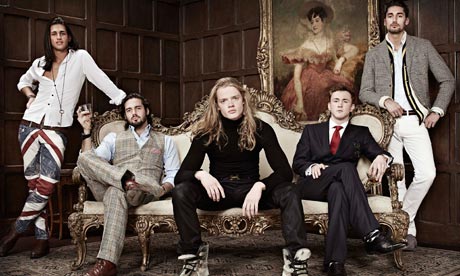Both films depict the lives of rebellious youths who could be considered to be a part of negative sub cultures however I believe the representation in rebel without a cause is that of a counter culture in that they are trying to subvert the norms of the society behind them by going against the traditional proper middle-class ideal ology of their parents; the protagonist Jim Stark is presented as being displaced and different as he neither fits in with the majority of characters and has conflict with the local 'bad' group. This is similar to the set of main characters in Kidulthood as they are part of a social group that is neither with the majority of 'normal' students but still has conflict and is oppressed by both a more powerful social group and greater society; in both films the interaction of characters is centred around Henri Tajfel's theory on 'in and out' groups and we can see in both films the existence of distinct groups where the 'in group' clearly tries to raise their self-esteem and self-worth by bullying and discriminating against the 'out-group' and in this sense both films equally raise and present social issues to the masses.
Though both films do present social issues I feel that Rebel without a cause' is presents its protagonists as being a part of a counter culture whereas in Kidulthood a Y2K film even though they don’t adhere to the rules set by regular society they are represented as violent and taking part in anti-social behaviour; which reflects the way that youth are often negatively depicted in the media in present society for example the way that during the London riots young people were depicted as being 'savage', 'violent' hooligans. there was also racial profiling by the media as most of the hooligans shown were of black decent this is also the case in Kidulthood whereas in Rebel without a cause the characters are predominately white although this is probably mostly due to the difference in time periods however the image presented by the media has definitely become more extreme and graphic. In Kidulthood there are often scenes of heightened and graphic violence between young people often accompanied by incessant swearing and crude language as well as depicting the characters to be promiscuous and very sexually active where the female character are often portrayed in the hegemonic view of submissive females as they are often seen merely as sexual objects by male characters and are seen performing sex acts. Whereas by comparison rebel without seems extremely watered down which shows that in that time representation of youth was not as graphic and was more reserved whereas now the representation is more graphic although it may be that now it is just that the representation is a more realistic portrayal and its not that young people have become more barbaric it is just that the representation of them in films like Rebel without a cause is not as realistic.
The representations from 1950 have completely evolved to the representations from the Y2K era in that the representations have become more graphic and often quite negative youth are now often portrayed as being mindlessly violent in comparison to the way were shown to be rebelling more against their parents in films like Rebel without a cause. This representation is bound to change as the times do and as young people construct their identity's both collective and personal and I personally believe that the representation now is often more realistic then it was in the 50's however i also feel that the mass media has flipped that on its head and rather then the more realistic rougher image of youth being held back like in Rebel without a cause the mass media is often used to create a sense of hysteria by overemphasising and blowing young people behaviours out of proportion.

